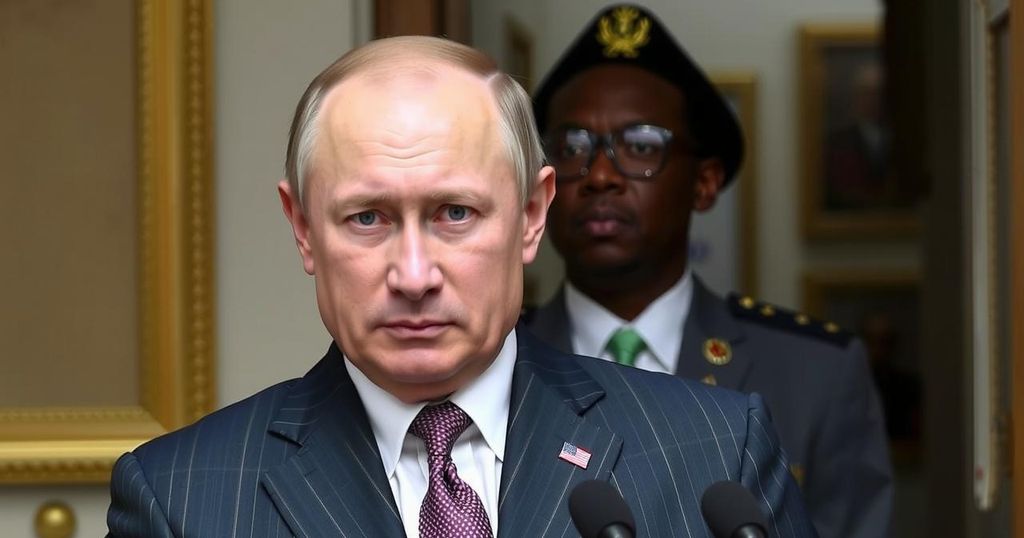Putin Faces Setbacks in Africa Amid Rejections from Sudan and Libya
Vladimir Putin’s military ambitions in Africa face setbacks as Sudan and Libya reject Russian military presence. Sudan denied a request for a naval base, while Libya’s Prime Minister condemned foreign interventions without agreements. This resistance threatens Moscow’s strategic objectives following the destabilization of Bashar al-Assad’s regime in Syria, highlighting the challenges Russia faces in maintaining influence in the region.
Russian President Vladimir Putin has faced a significant setback in Africa as two of his prominent allies, Sudan and Libya, have publicly challenged the presence of Russian military forces in their regions. Following the recent turbulence in Syria, particularly the fall of Bashar al-Assad’s regime, Sudan has officially denied Russia’s request to establish a naval base in Port Sudan, despite an offer of S-400 anti-aircraft missiles. Additionally, Libyan Prime Minister Abdul Hamid Dbeibeh has expressed strong opposition to foreign military incursions, asserting that no foreign forces can operate in Libya without official agreements. This resistance underscores the increasing difficulty for Moscow to maintain and expand its influence on the continent, particularly in light of the shifting geopolitical landscape following Assad’s downfall. With these developments, Russia’s initial ambitions in Africa, including military agreements and naval bases, may be jeopardized, compelling Moscow to reassess its strategy in the region.
The backdrop to this unfolding situation involves Russia’s strategic military interests in the Middle East and Africa, particularly after the changing dynamics in Syria. Following the civil unrest and the approaching collapse of Assad’s regime, Russia’s military footholds in Syria, such as the Tartus naval base, are under threat. This has prompted Russian leaders to consider shifting military assets to North Africa, where they aim to strengthen ties with local governments and establish a reliable presence. However, recent dissent by key allies like Sudan and Libya raises critical questions about Russia’s long-term strategic plans in the region and its ability to exert influence without facing local opposition.
In summary, the rejections by Sudan and Libya regarding Russian military presence signify a turning point for Moscow’s ambitions in Africa. As Russia grapples with these challenges amid the backdrop of instability in Syria, its efforts to establish a lasting military influence on the continent are increasingly at risk. The dual rejections highlight the complexities of international relations within the region and suggest a need for Russia to adopt a more nuanced approach to maintain its aspirations in Africa.
Original Source: www.newsweek.com




Post Comment